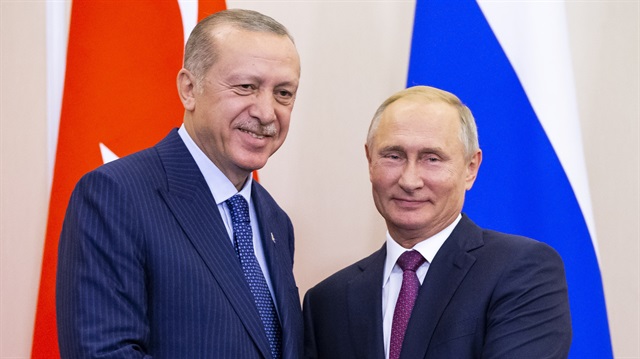
Sochi Agreement initiated by Turkish President Recep Tayyip Erdoğan ended airstrikes, threats by regime and Russia
Some four million civilians taking shelter in Syria's Idlib province -- with Turkey's efforts -- have been protected from a possible massacre and migration risk imposed by the Bashar al-Assad regime and its allies.
Located in northwest Syria, Idlib has become one of the regions hit by the greatest wave of violence during the Syrian civil war. Therefore, it was declared a de-escalation zone following the Astana meeting by Turkey, Russia and Iran on May 4-5, 2017.
At the same time, being the "stronghold" of the military opposition amid the civil war, Idlib received a great number of refugees.
Due to the attacks by the Assad regime and its allies, the civilians fled from various parts of the country to Idlib, increasing the population of the province to nearly four million.
In addition, the military opposition which were forcefully evacuated from the many points that the regime had recently seized through the blockade were also gathered in Idlib.
Idlib -- where armed groups such as Hayat Tahrir al-Sham and Huraseddin also have a presence along with the opposition -- has turned into the new target of the regime and allies in the summer.
While the regime forces intensely deployed military elements to Idlib -- surrounding it from three directions -- the regime head Assad and Russian officials made threatening statements towards the region.
The regime and Russia launched airstrikes on Idlib on Sept. 4. Tens of thousands of civilians began to migrate towards the regions near the Turkish border or the Turkish army's observation points in the country.
As the UN increased its warnings on a possible huge civilian massacre, migration wave and humanitarian crisis in Idlib, Turkey accelerated its diplomacy traffic.
Turkish officials conducted meetings with delegations of Russia and Iran, the guarantors of the Syrian cease-fire within the framework of Astana agreements.
Following Turkish President Recep Tayyip Erdoğan's proposal during the trilateral summit held in Tehran on Sept. 7, Erdoğan and Russian President Vladimir Putin agreed on additional measures to maintain the cease-fire in Idlib in a meeting held in Sochi on Sept. 17.
Following the Sochi Agreement, a new phase started in Idlib -- the regime and Russia ended their airstrikes and threats.
Some 80,000 civilians who left their homes following the attacks returned to Idlib. The civilians, encouraged by the Turkish army's presence at the observation points, began to repair their houses damaged by the attacks.
Despite the difficult conditions, the families began to send their children to schools. The environment of trust revived the social and economic life in the city.




